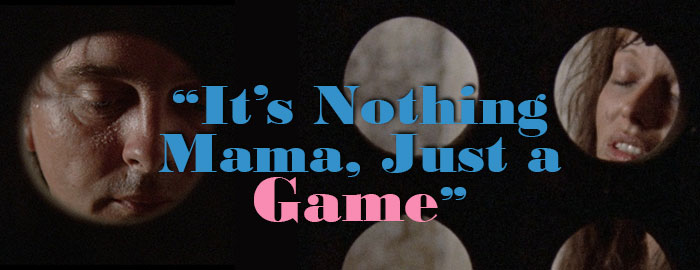
Color, 1974, 88 mins. 51 secs.
Directed by José María Forqué
Starring David Hemmings, Alida Valli, Francisco Rabal, Andrea Rau
Mondo Macabro (Blu-ray) (US R0 HD)
/
WS (1.85:1) (16:9)

Color, 1974, 88 mins. 51 secs.
Directed by José María Forqué
Starring David Hemmings, Alida Valli, Francisco Rabal, Andrea Rau
Mondo Macabro (Blu-ray) (US R0 HD)
/
WS (1.85:1) (16:9)
 were a really avid treasure hunter for weird
were a really avid treasure hunter for weird 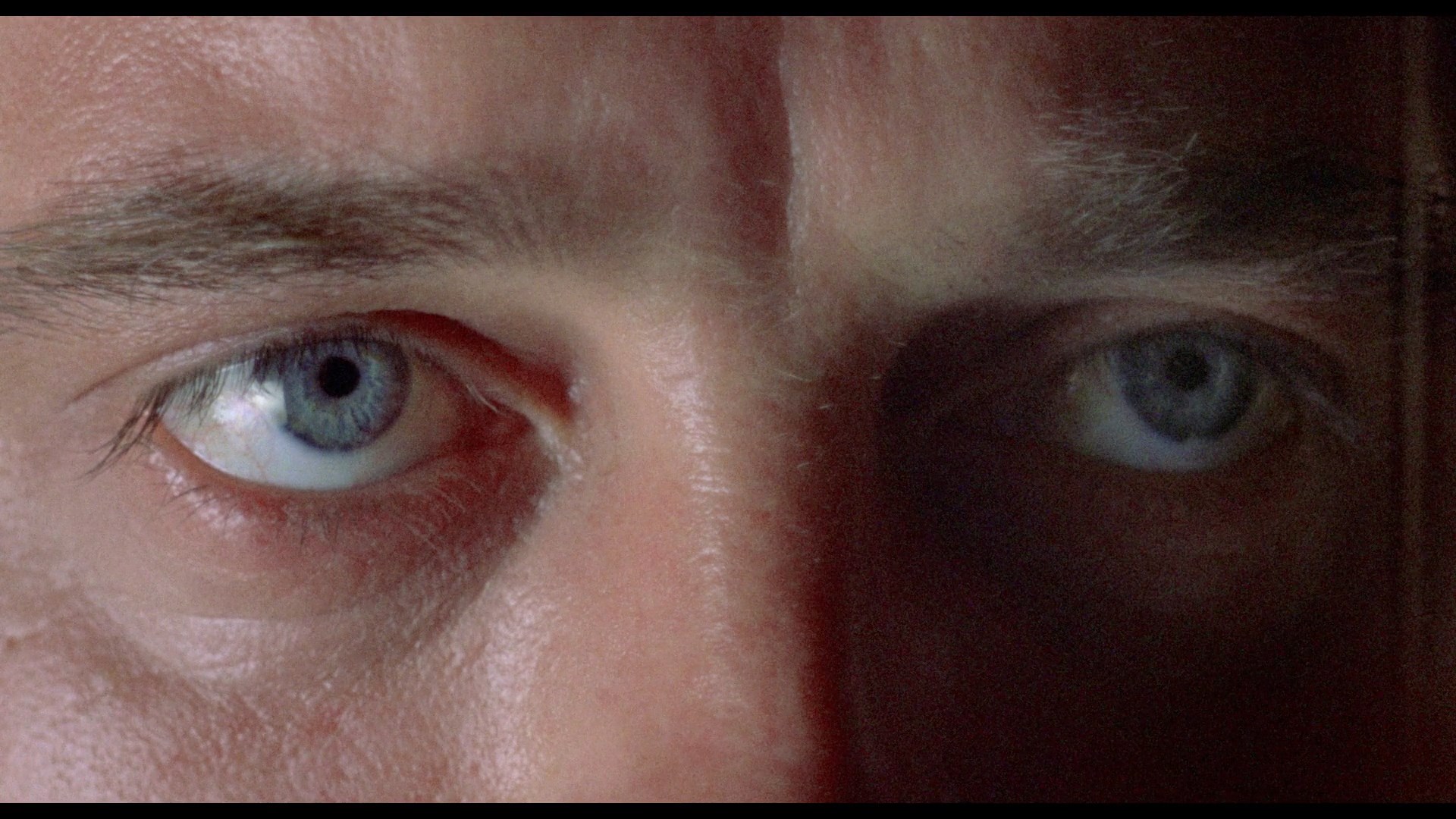 movies on VHS back in the '80s, chances are you'd rent anything released by Prism Video in those eye-catching oversized boxes. One film in particular was a real puzzler, lurking behind an odd piece of semi-abstract art under the title Beyond Erotica. Touting a starring role for none other than David Hemmings (Blow-up, Deep Red, etc.), it tended to get categorized in any number of random genres: drama, horror, mystery... well, pretty much everywhere except the children's and sports sections. So, what exactly is "beyond erotica" when you watch the film? Apparently it means "very sweaty" since you actually get a psychodrama with a bit of nudity and a lot of twisted psychology in one of the most overheated atmospheres you've ever seen. By the time the IMDb rolled around it was easier to identify this as No es nada, mamá, sólo un juego, or It's Nothing Mama, Just a Game, a Caracas-Madrid co-production filmed in the latter country under what looks like extremely humid conditions and shopped around to U.S. theaters at the end of the decade as Lola and then that Beyond Erotica title. The VHS release certainly puzzled a few Hemmings fans and stuck in the memories of fans of Euro oddities, but the film dropped off the face of the earth after that for decades until Mondo Macabro dug it up for a nicely restored Blu-ray release in 2021.
movies on VHS back in the '80s, chances are you'd rent anything released by Prism Video in those eye-catching oversized boxes. One film in particular was a real puzzler, lurking behind an odd piece of semi-abstract art under the title Beyond Erotica. Touting a starring role for none other than David Hemmings (Blow-up, Deep Red, etc.), it tended to get categorized in any number of random genres: drama, horror, mystery... well, pretty much everywhere except the children's and sports sections. So, what exactly is "beyond erotica" when you watch the film? Apparently it means "very sweaty" since you actually get a psychodrama with a bit of nudity and a lot of twisted psychology in one of the most overheated atmospheres you've ever seen. By the time the IMDb rolled around it was easier to identify this as No es nada, mamá, sólo un juego, or It's Nothing Mama, Just a Game, a Caracas-Madrid co-production filmed in the latter country under what looks like extremely humid conditions and shopped around to U.S. theaters at the end of the decade as Lola and then that Beyond Erotica title. The VHS release certainly puzzled a few Hemmings fans and stuck in the memories of fans of Euro oddities, but the film dropped off the face of the earth after that for decades until Mondo Macabro dug it up for a nicely restored Blu-ray release in 2021. an opening that's strikingly similar to the same year's Seven Women for Satan, decadent
an opening that's strikingly similar to the same year's Seven Women for Satan, decadent 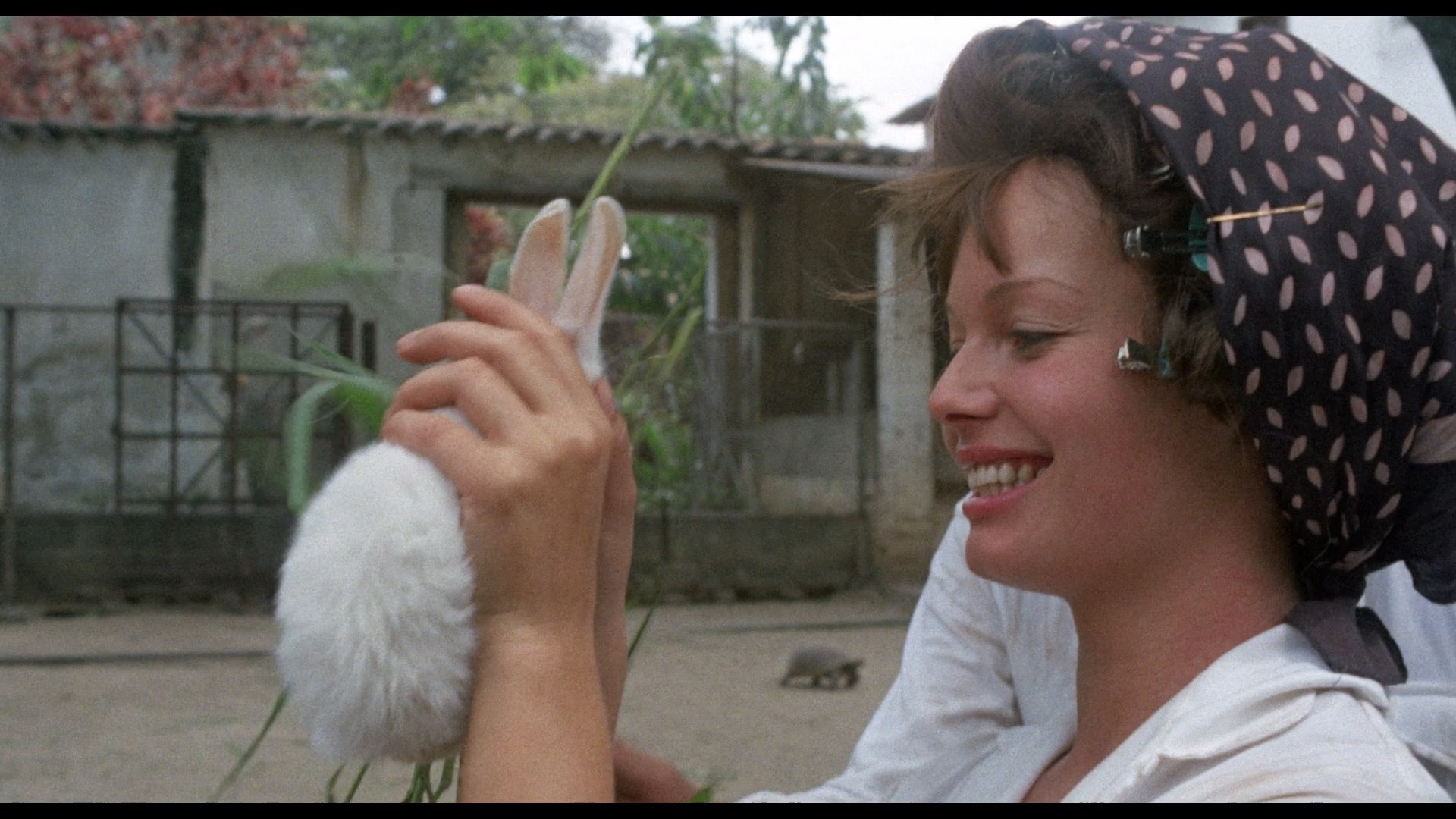 sugar plantation owner Juan (Hemmings) is first seen astride a horse chasing a bikini-clad woman in furry bunny ears through the afternoon woods. He's flanked by a pack of ferocious dog as well, and when she gets her foot caught in a bear trap, the canines get fatally carried away. Cut to the main titles as the townspeople mourn the death and find themselves unable to take any action against Juan and his domineering mother (Lisa and the Devil's Valli), who are the primary local source of employment along with the nearby chicken farm. Penniless young Lola (Daughters of Darkness' Rau) catches Juan's eye as a suitable replacement when he spies her cradling a puppy out on the property, but she initially rebuffs him and brings out his petulant sexual assailant side. Delighted by her fighting spirit, Juan decides that he will find a way to dominate her but soon finds that money and entitlement alone may not be enough to get what he wants.
sugar plantation owner Juan (Hemmings) is first seen astride a horse chasing a bikini-clad woman in furry bunny ears through the afternoon woods. He's flanked by a pack of ferocious dog as well, and when she gets her foot caught in a bear trap, the canines get fatally carried away. Cut to the main titles as the townspeople mourn the death and find themselves unable to take any action against Juan and his domineering mother (Lisa and the Devil's Valli), who are the primary local source of employment along with the nearby chicken farm. Penniless young Lola (Daughters of Darkness' Rau) catches Juan's eye as a suitable replacement when he spies her cradling a puppy out on the property, but she initially rebuffs him and brings out his petulant sexual assailant side. Delighted by her fighting spirit, Juan decides that he will find a way to dominate her but soon finds that money and entitlement alone may not be enough to get what he wants.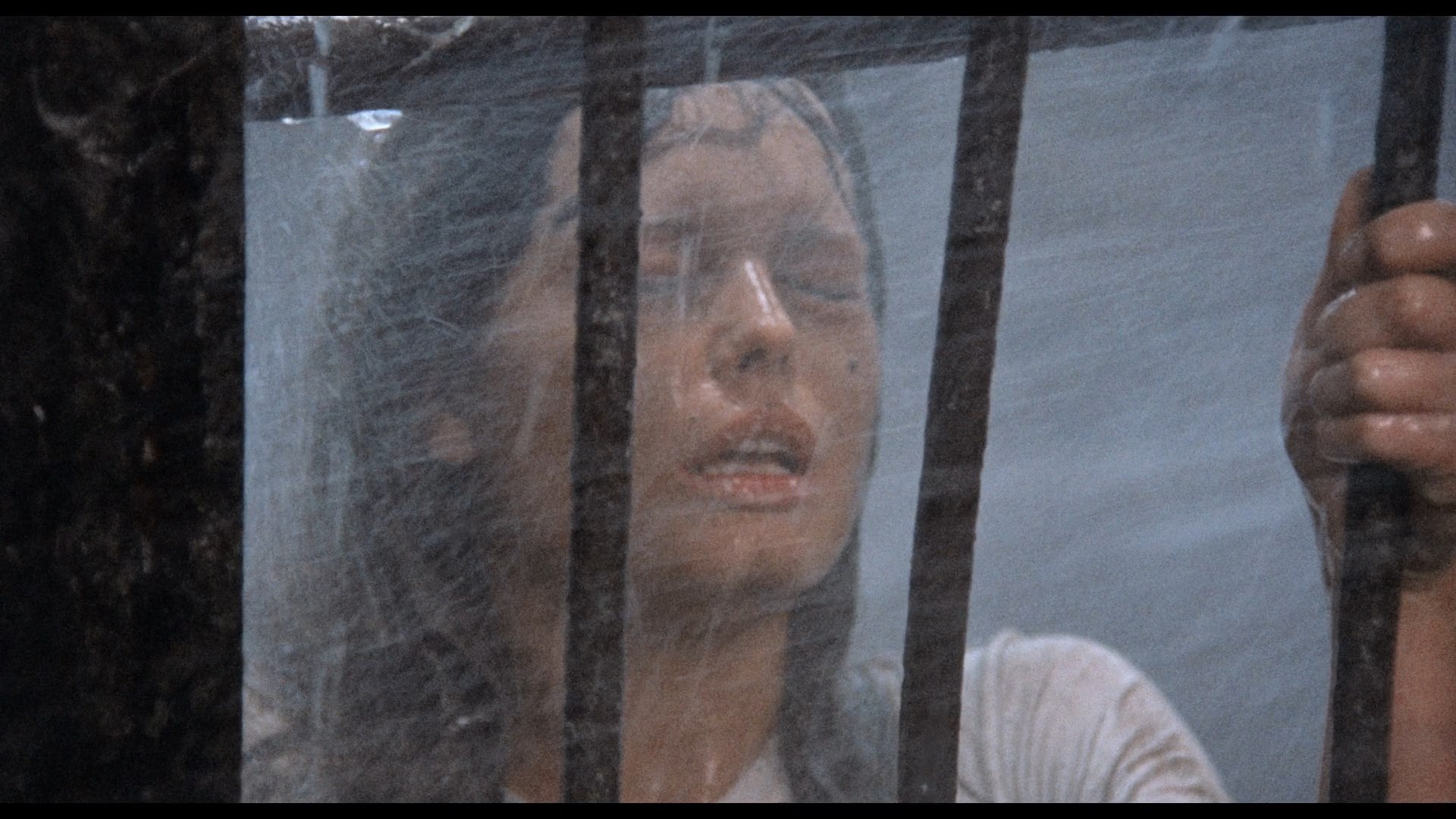 total absurdity. Rau manages to go toe to toe with him at every step, and though she doesn't have to do much more than sitting around
total absurdity. Rau manages to go toe to toe with him at every step, and though she doesn't have to do much more than sitting around  shade at everyone in sight, the unusually tan Valli is perfectly cast as well.
shade at everyone in sight, the unusually tan Valli is perfectly cast as well. 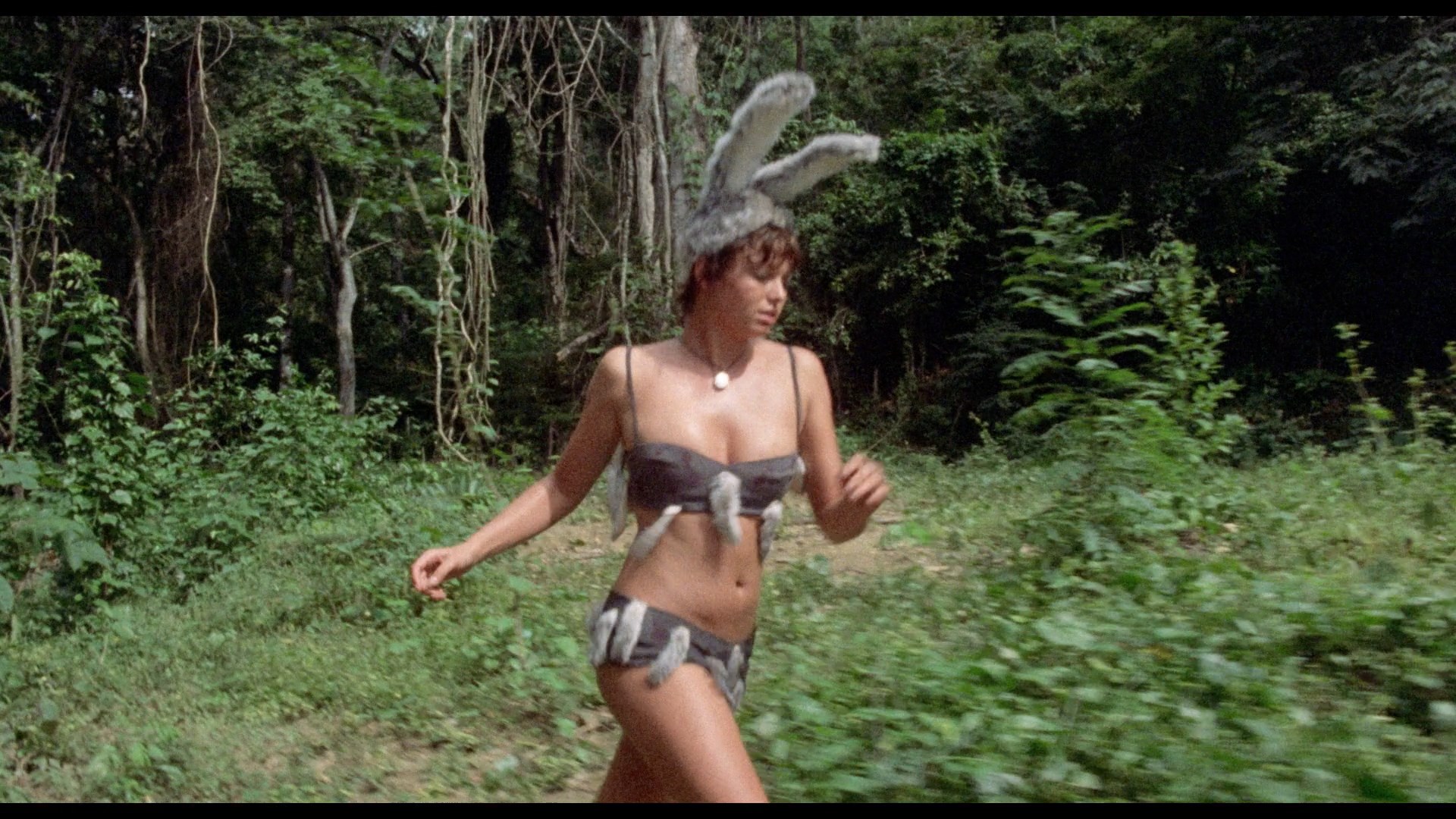 touching on both is odd European projects and his more mainstream achievements (though skipping over a few
touching on both is odd European projects and his more mainstream achievements (though skipping over a few  really crazy footnotes like the wild Technicolor musical Some People, which is worth a look). Absolutely worth a look for Hemmings newbies and fans alike, though be warned the repetitive three-note score that runs through nearly the entire piece might force you to take a breather halfway through. Also included are the Beyond Erotica Prism VHS trailer and the theatrical Lola one (also seen ages ago on the Trailer Trash DVD), the Spanish title sequence (versus the English one on the main feature), and the usual Mondo Macabro promo reel. As for the film itself, it looks really wonderful here; there isn't much of a home video history elsewhere besides VHS, but it's a glorious presentation and really gives it a professional crispness that wasn't even hinted at before. The English and Spanish tracks are both included in mint condition in DTS-HD 2.0 mono, with optional English subtitles (translated from the Spanish track). Most viewers will likely opt for the English track as it features Hemmings' original voice, and most of the other primary actors were speaking English as well (but dubbed later). However, it's interesting to compare the two given how different the vocal timbers are for some of the actors and the variations in some of the line deliveries, particularly when it comes to the great Francisco Rabal.
really crazy footnotes like the wild Technicolor musical Some People, which is worth a look). Absolutely worth a look for Hemmings newbies and fans alike, though be warned the repetitive three-note score that runs through nearly the entire piece might force you to take a breather halfway through. Also included are the Beyond Erotica Prism VHS trailer and the theatrical Lola one (also seen ages ago on the Trailer Trash DVD), the Spanish title sequence (versus the English one on the main feature), and the usual Mondo Macabro promo reel. As for the film itself, it looks really wonderful here; there isn't much of a home video history elsewhere besides VHS, but it's a glorious presentation and really gives it a professional crispness that wasn't even hinted at before. The English and Spanish tracks are both included in mint condition in DTS-HD 2.0 mono, with optional English subtitles (translated from the Spanish track). Most viewers will likely opt for the English track as it features Hemmings' original voice, and most of the other primary actors were speaking English as well (but dubbed later). However, it's interesting to compare the two given how different the vocal timbers are for some of the actors and the variations in some of the line deliveries, particularly when it comes to the great Francisco Rabal.![]()